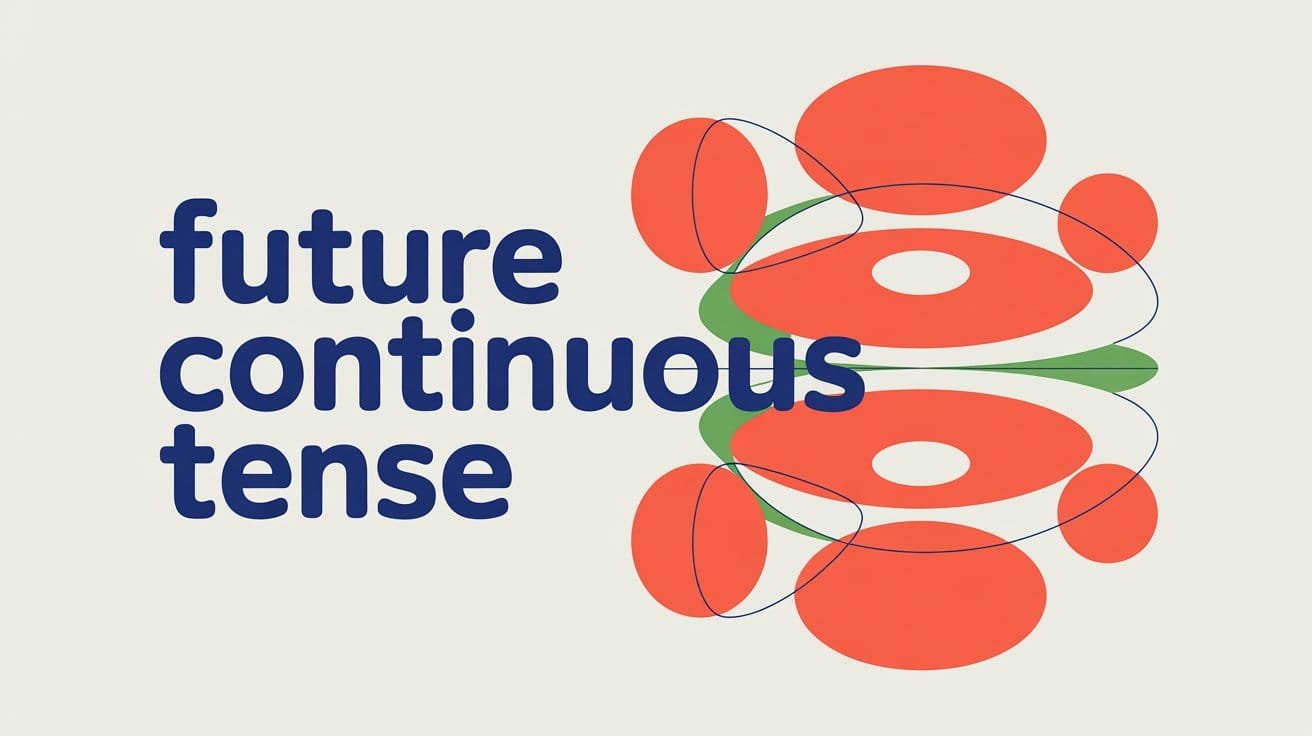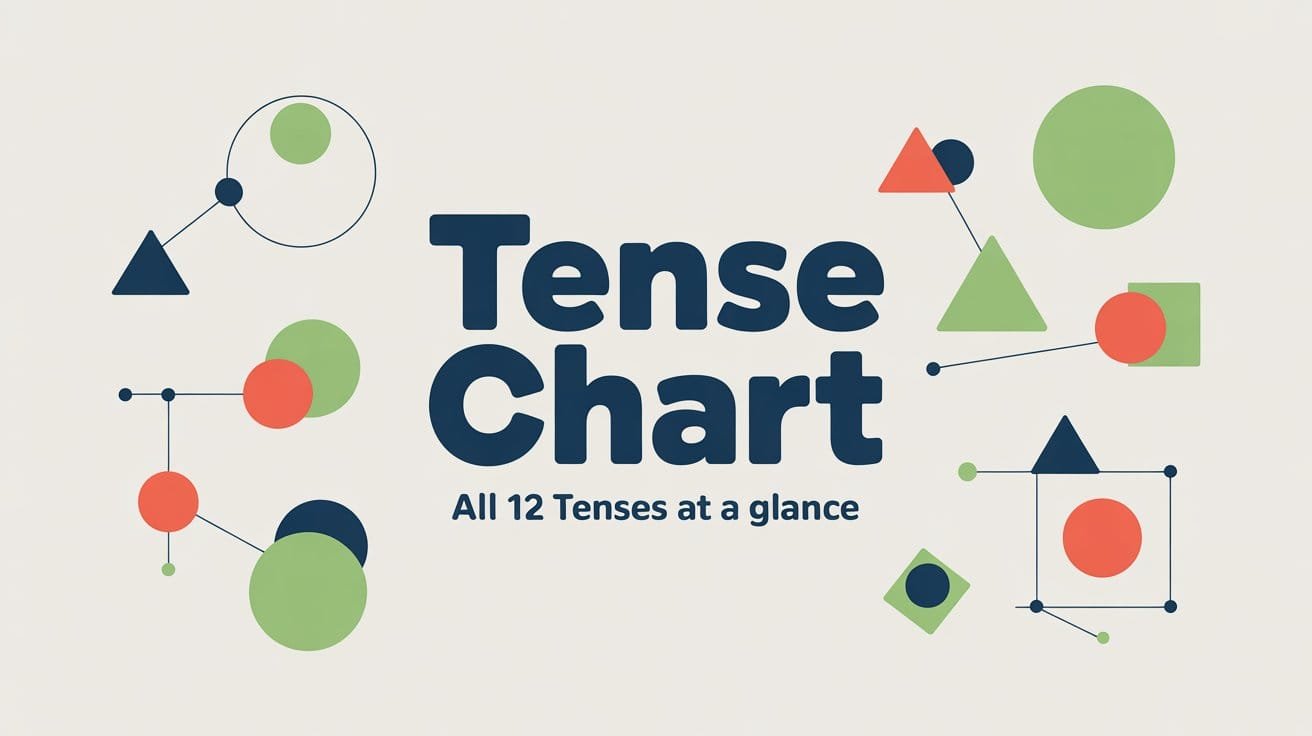The future continuous tense is used to describe actions that will be ongoing at a specific time in the future. It helps convey that an activity will be in progress during a particular moment or over a period in the future. For example: “She will be studying at 8 PM.” This indicates that at 8 PM, the action of studying will be happening.
This tense is useful for discussing planned events, predicting future activities, or setting the scene for another action. In this guide, you’ll learn how to form the future continuous tense, when to use it, and how to avoid common mistakes—with clear examples throughout.
Structure of the Future Continuous Tense
The future continuous tense describes actions that will be happening at a particular time in the future. It’s formed using will be + verb-ing and remains the same for all subjects.
Affirmative Sentences
Structure:
Subject + will be + verb-ing
Examples:
- I will be attending a workshop tomorrow afternoon.
- She will be waiting at the station by 9 AM.
- They will be traveling during the holidays.
- We will be watching the game together tonight.
Negative Sentences
Structure:
Subject + will not (won’t) be + verb-ing
Examples:
- He will not be joining the meeting.
- I won’t be driving in the morning.
- They won’t be using the lab next week.
- She will not be staying for dinner.
Interrogative Sentences
Structure:
Will + subject + be + verb-ing?
Examples:
- Will you be working late today?
- Will she be presenting the report?
- Will they be staying at the hotel?
- Will we be using the same classroom?
Usage of the Future Continuous Tense
The future continuous tense helps describe what will be happening at a particular time in the future. It’s useful when you want to show that an action will be in progress or to add detail to future plans.
To Show an Action in Progress at a Specific Time in the Future
Use it when an activity will be happening during a certain time frame.
Examples:
- She will be working at 10 AM tomorrow.
- They will be having dinner when we arrive.
- I’ll be attending the conference next Friday.
To Indicate Future Plans or Arrangements
This tense can describe scheduled events that are expected to happen.
Examples:
- We will be staying at the city hotel next week.
- He will be using the lab after lunch.
- The team will be rehearsing in the auditorium.
To Ask Politely About Future Activities
Use it in questions to sound more polite or less direct.
Examples:
- Will you be needing the room this evening?
- Will she be joining us for dinner?
- Will they be traveling next weekend?
Common Time Expressions with the Future Continuous
Time expressions help anchor the action in a specific future moment. With the future continuous tense, they often indicate when the ongoing activity will be taking place.
Common Expressions
- at [specific future time]
- this time tomorrow / next week
- by [future time or date]
- when
- while
- during
- all day / all night
- in the evening / in the morning
Examples:
- This time tomorrow, she will be flying to London.
- They’ll be watching a movie while we’re preparing dinner.
- He will be working during the weekend.
- We’ll be sleeping by the time you arrive.
Practice Tips for Using the Future Continuous Tense
To get comfortable with this tense, practice describing what will be happening at specific times in the future. Focus on duration, time references, and polite expressions for better fluency.
Practice Scheduling Your Day in the Future
Choose a date and plan it hour by hour using the future continuous.
Example:
- Tomorrow at 9 AM, I’ll be attending a client meeting.
- Around 3 PM, we’ll be reviewing the final presentation.
Describe Overlapping Activities
Practice combining two actions happening at the same time—one yours, one someone else’s.
Example:
- While I’ll be preparing dinner, my brother will be setting up the table.
- She’ll be driving to the airport while they’ll be checking in online.
Use Polite Questions for Future Plans
Use this tense to ask gently about someone’s schedule or availability.
Example:
- Will you be using the conference room at 11?
- Will your team be joining us for the strategy session?
Reflect on What Others Will Be Doing
Think about family, friends, or coworkers and describe their activities in the future.
Example:
- My parents will be attending a wedding this weekend.
- The students will be taking their final exams next Friday.
Frequently Asked Questions About the Future Continuous Tense
What is the future continuous tense and when is it used?
The future continuous tense describes an action that will be happening at a specific time in the future. It’s often used to show that something will be in progress, to talk about plans, or to make polite inquiries.
How do you form the future continuous tense?
Use the structure: will be + verb-ing. This stays the same for all subjects. Example: She will be attending the meeting at 10 AM.
What is the difference between future simple and future continuous tenses?
Future simple talks about a single future action. Example: They will start the project tomorrow.
Future continuous describes an action in progress at a future time. Example: They will be working on the project tomorrow afternoon.
Can we use “shall” in the future continuous tense?
Yes, but it’s mostly used in formal British English, and usually with I or we. Example: Shall we be meeting them at the venue?
In most cases, will is preferred.
What are some examples of future continuous tense sentences?
Here are a few examples:
I will be studying at 9 PM.
They will be traveling next week.
Will you be using this desk tomorrow?



